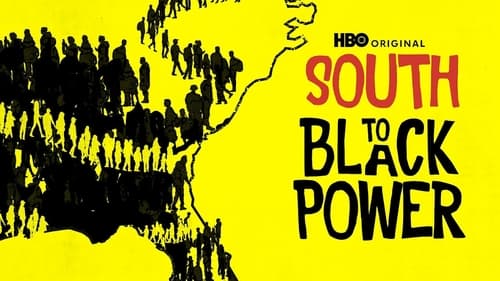
Director
In his provocative 2021 book, The Devil You Know: A Black Power Manifesto, New York Times opinion columnist Charles M. Blow calls for a “reverse Great Migration” of African Americans from the North back to the South to upend today’s political power structures while reclaiming the land and culture they left behind. South to Black Power does more than illustrate Blow’s enlightening ideas; we journey through Blow’s personal story, from his childhood in Louisiana to his role as father to young adult children in New York City, showing us the hard-won truths behind his vision for the future.

Executive Producer
Kafi Dixon dreams of starting a land cooperative for women of color who have experienced trauma and disenfranchisement in the city of Boston. By day she drives a city bus; at night she studies the humanities in a tuition-free course. Her classmate Carl Chandler, a community elder, is the class’s intellectual leader. White suburban filmmaker James Rutenbeck documents the students’ engagement with the humanities. He looks for transformations but is awakened to the violence, racism and gentrification that threaten Kafi and Carl's very place in the city. Troubled by his failure to bring the film together, he enlists the pair as collaborators with a share in the film revenues. Five years on, despite many obstacles, Kafi and Carl arrive at surprising new places in their lives—and James does too.

Director
When the U.S. trade embargo left Cuba isolated from medical resources, Cuban scientists were forced to get creative. Now they've developed lung cancer vaccines that show so much promise, some Americans are defying the embargo and traveling to Cuba for treatment. In an unprecedented move, Cuban researchers are working with U.S. partners to make the medicines more widely available.

Writer
The water crisis in Flint, Michigan, brings awareness to the vulnerabilities of water systems across the U.S.

Director
The water crisis in Flint, Michigan, brings awareness to the vulnerabilities of water systems across the U.S.

Director
Follow the story of Swedish researcher Gunnar Myrdal whose landmark 1944 study, An American Dilemma, probed deep into the United States' racial psyche. The film weaves a narrative that exposes some of the potential underlying causes of racial biases still rooted in America’s systems and institutions today.

Producer
Follow the story of Swedish researcher Gunnar Myrdal whose landmark 1944 study, An American Dilemma, probed deep into the United States' racial psyche. The film weaves a narrative that exposes some of the potential underlying causes of racial biases still rooted in America’s systems and institutions today.

Narrator
Follow the story of Swedish researcher Gunnar Myrdal whose landmark 1944 study, An American Dilemma, probed deep into the United States' racial psyche. The film weaves a narrative that exposes some of the potential underlying causes of racial biases still rooted in America’s systems and institutions today.

Narrator
In 1861, at the outbreak of the American Civil War, a teenager from New Orleans headed to the front lines. Under the alias Harry T. Buford, he fought at First Bull Run, was wounded at Shiloh, and served as a Confederate spy. But Buford harbored a secret-he was really Loreta Velazquez, a Cuban immigrant from New Orleans. By 1863, Velazquez was spying for the Union. She scandalized America when she revealed her story in her 1876 memoir, The Woman in Battle. Attacked not only for her criticism of war, but her sexuality and social rule-breaking, Velazquez was dismissed as a hoax for 150 years. But evidence confirms she existed, one of over 1,000 women soldiers who served in the Civil War. What made her so dangerous she was erased from history?

Director
A documentary on what is it that makes us who we are: an African an African, a Jew a Jew, an Arab an Arab, a white person white -and what do we make of our apparent differences? Not so long ago, all human cultures assumed a natural and unassailable hierarchy - Europeans on the top, blacks on the bottom and everybody else in the middle. The work of the anthropologist Melville Jean Herskovits helped upend many of these assumptions. Herskovits: A Jew at the Heart of Blackness is the journey of a man into international race politics and its consequences for him -and us- in the first half of 20th century, when the battleground in the earliest "culture wars" was newspapers, radio shows, movies and cartoon, all infused with propaganda that explained why Caucasians dominated the world and other peoples as part of life's natural and inevitable order.

Director
What are the connections between healthy bodies and healthy bank accounts and skin color? How do social policies and the way we organize work and society affect health? Solutions lie not in more pills but in more equality.

Editor
Polio at age 39, president at age 50. Explore the public and private life of a determined man who steered this country through two monumental crises: the Depression and World War II. FDR served as president longer than any other, and his legacy still shapes our understanding of the role of government and the presidency. A film by award winning filmmaker David Grubin. This is the second of four parts.

Editor
He went off to war an unknown soldier and returned a beloved national hero. Often dismissed as a "do-nothing" president and a good-natured bumbler, Dwight D. Eisenhower -- the last American president to be born in the 19th century -- was actually a skillful politician, a tough Cold War warrior, and one of America's most misunderstood and unappreciated presidents. Two-part documentary from American Experience.












